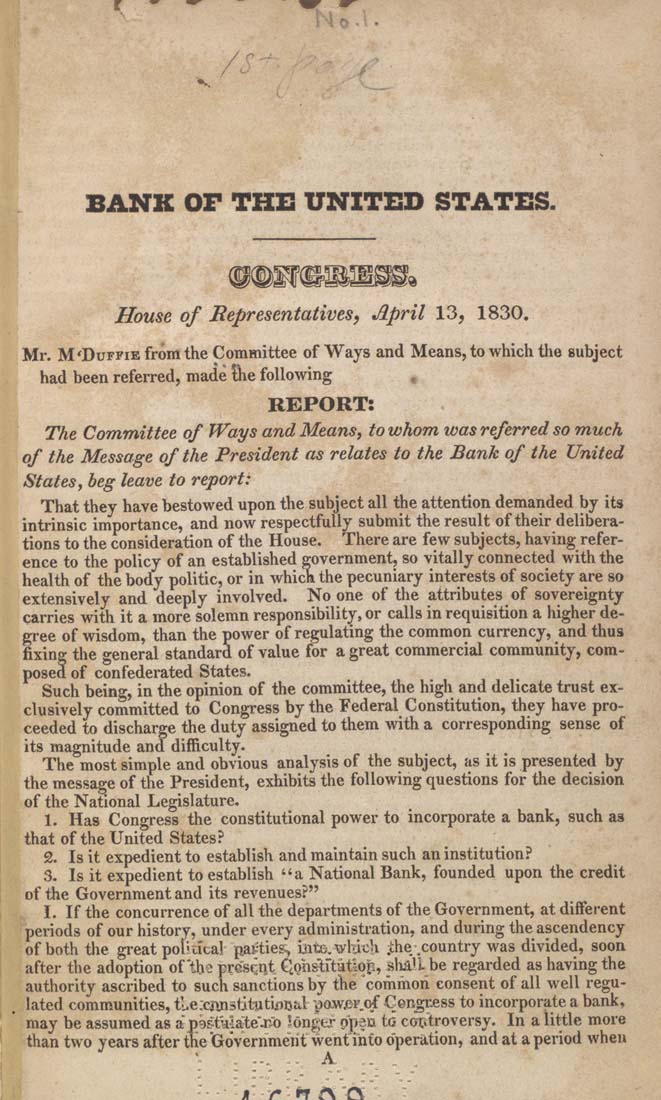BANK OF THE UNITED STATES.
House of Representatives, April 13, 1830.
Mr. M 'DuFFiE from the Committee of Ways and Means, to which the subject
had been referred, made &e following ,
REPORT:
7%e Committee of fVays and Means, to whom was referred so much
of the Message of the President as relates to the Bank of the United
States, beg leave to report:
That they have bestowed upon the subject all the attention demanded by its
intrinsic importance, and now respectfully submit the result of their delibera¬
tions to the consideration of the House. There are few subjects, having refer¬
ence to the policy of an established government, so vitally connected with the
health of the body politic, or in which the pecuniary interests of society are so
extensively and deeply involved. No one of the attributes of sovereignty
carries with it a more solemn responsibility, or calls in requisition a higher de¬
gree of wisdom, than the power of regulatmg the common currency, and thus
fixing the general standard of value for a great commercial community, com¬
posed of confederated States.
Such being, in the opinion of the committee, the high and delicate trust ex¬
clusively committed to Congress by the Federal Constitution, they have pro¬
ceeded to discharge the duty assigned to them with a corresponding sense of
its magnitude and difficulty.
The most simple and obvious analysis of the subject, as it is presented by
the message of the President, exhibits the following questions for the decision
of the National Legislature.
1. Has Congress the constitutional power to incorporate a bank, such as
that of the United States ?
2. Is it expedient to establish and maintain such an institution?
3. Is it expedient to establish "a National Bank, founded upon the credit
of the Government and its revenues?"
I. If the concurrence of all the departments of the Government, at diifei-ent
periods of our history, under every administration, and during the ascendency
of both the great political patties, inte.iyhich .the .country was divided, soon
after the adoption of'the preset G.Qhgtrtut|op, aWi- be regarded as having the
authority ascribed to such sanctions by the common consent of all well regu-
. lated communities, t'L.e;cnn3tit»tii)UaV pawer.of Cen^Kss to incorporate a bank,
may be assumed as a'^g&taiate'j* longer c>p-;n to cotitroversy. In a little more
than two years after the'Gdverrimerif went'ihto operation, and at a period when
|








